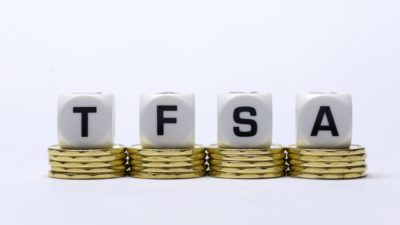The Tax-Free Savings Account (TFSA) has been a Canadian success story. The TFSA was introduced in 2009 and has already become the most popular registered savings account in Canada.
However, when it comes to saving for your child’s education, the TFSA is not the best option. There is one registered account that reigns supreme, and that is the Registered Education Savings Plan (RESP).
Here are some of the reasons why.
You can start the RESP early
The TFSA can only be opened once your child turns 18. Contrast this with the RESP, which you can open from the day your child is born. You might be tempted to use your own TFSA to save for your child’s education. The main argument for this is the RESP goes towards taxable income once it is withdrawn, while the TFSA does not.
You should shy away from this thinking. For your RESP, when money is withdrawn, it would be taxable under your child’s name. Because your child will be a student, he or she will likely have very little income, so the taxes should be next to nothing.
Also, you might want to have the TFSA contribution room for your own investments in the future.
The RESP is a guaranteed 20% return on investment
Do you know how they say that there are no guarantees in the investing world? Well, in this case, there is. With your RESP, you can contribute up to a maximum of $50,000 per child.
Per year, you should max out your RESP at $2,500. This will guarantee you a return of 20% on your investment. The maximum amount of Canadian Education Savings Grant you can receive is $7,200.
There is nothing in the investment world that can guarantee a 20% return on investment. The RESP is a guaranteed 20% before any other types of gains. When you combine this with a strong dividend stock, the results can be amazing after 18 years.
Consider if you were to invest in Alaris Royalty (TSX:AD) in your child’s RESP. Alaris is a private equity company with a very unique focus. The company provides long-term capital to private companies all across North America.
Alaris Royalty has an enormous dividend yield of 7.85%. The company has been paying dividends for the last 11 years. Let’s use this yield as an estimate for our return in the RESP vs. the TFSA.
For the RESP example, the assumption is that you will contribute $2,500 per year, receive the maximum amount of grants at $7,200, and start when the baby is zero years of age. The power of contributing at an early age is evident here, with the RESP growing to $108,727 with all of these grants included.
For the TFSA without the grants, the amount is only $92,270. This is over $16,000 more if you put it into the RESP over the TFSA!
The RESP can help lower-income families
If your family meets certain income requirements, you can qualify for Canada Learning Bonds in your RESP. These bonds are even more free money from the government.
You could receive an additional $2,000 from the government. This will be distributed $500 during the first year of eligibility, and $100 each year the child continues to be eligible.
If your household has between one and three children, and your family’s net adjusted income is less than or equal to $47,630, your child would be eligible to receive this amount without any contributions from your own money to the RESP at all.
Final thoughts
If you’re saving for your child’s education, choose the RESP over the TFSA every time. The bonus money given by the government in your RESP can’t be beaten and is equal to a 20% return on your investment for over 14 years. There is no investment out there that can top that.








